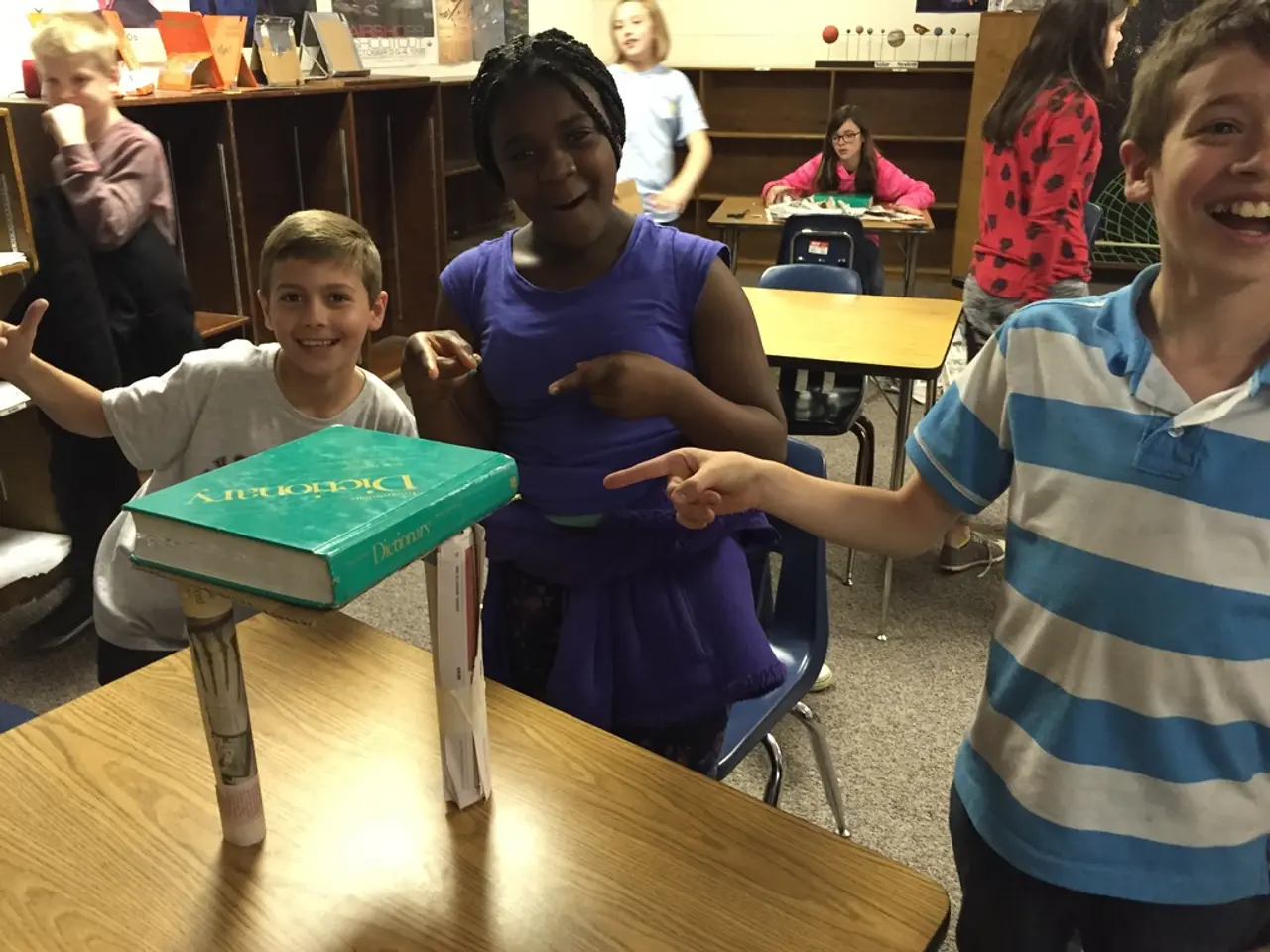Top 10 Essential Reading Recommendations on Educational Psychology for Parents
Improving Parenting Skills: A Guide to Top Educational Psychology Books
In the ever-evolving world of parenting, understanding child development and improving parenting skills is crucial. Here's a list of some top educational psychology books for parents that offer evidence-based, psychologically-informed insights and practical tools.
1. "Positive Discipline" by Jane Nelsen
This book, grounded in Adlerian psychology, emphasizes mutual respect, empathy, and accountability. It provides practical strategies to guide children's behavior without punishments or rewards, focusing on long-term character development rather than immediate compliance.
2. "1-2-3 Magic" by Thomas Phelan
A simple, calm, and consistent behavioral management system, "1-2-3 Magic" is particularly appreciated for its structure in setting boundaries grounded in behavioral and cognitive therapy principles.
3. "The Book You Wish Your Parents Had Read" by Philippa Perry
This psychotherapist’s book delves deeply into how unresolved emotional wounds from past generations shape parenting styles. It is especially recommended for parents seeking to break reactive or emotionally distant patterns in their families.
4. "Raising Good Humans" by Hunter Clarke-Fields
Integrating neuroscience and mindfulness, this book supports empathetic, conscious parenting to reduce burnout, improve communication, and address emotional roots of behavior problems.
5. "Hold On to Your Kids" by Gabor Maté and Gordon Neufeld
This influential work explores the critical role of attachment in healthy child development and the risks of peer-dominated cultures weakening family bonds. It provides practical advice on fostering strong parent-child attachment for emotional security and maturity.
6. "Mindset" by Carol Dweck
While not exclusively a parenting book, it is considered essential for parents to understand how fixed versus growth mindsets affect children’s development and learning. It helps parents foster resilience and a positive approach to challenges in their children.
7. "Authentic Happiness" by Martin Seligman
This book from the father of positive psychology offers research-based methods for cultivating happiness and resilience, emphasizing natural strengths and emotional well-being, valuable for parents to understand child and family happiness.
Approaches concentrating on Empowered Parenting, involving emotion coaching, connection-based discipline, and nervous system regulation, are highlighted for fostering emotional maturity and resilience in children.
In addition to these books, there are resources specifically focused on online safety for children. "What your children do on the internet: a guide for parents" discusses the importance of education in preventing harmful use of technology and its associated problems like nomophobia, FOMO syndrome, and technostress.
Other books provide guidance for parents to understand and interpret their teenager's behaviour during adolescence. "Adolescents. Instruction manual" by Fernando Alberca and another book titled "Adolescents" discuss the challenges of parenting adolescents and provide strategies for maintaining a united family during this period.
"Educate me Well: 100 answers for worried mothers and fathers" is a practical guide that offers useful answers to common questions about child education and development, covering all stages of a child's growth, from birth to adolescence.
Lastly, "50 tips to live better with your teenagers" by Debra Ciavola offers practical tips to improve the parent-child relationship during adolescence. These books collectively provide a comprehensive resource list for enhancing parenting skills, covering a range of topics from discipline and attachment to mindset and emotional intelligence.
- The book "Positive Discipline" by Jane Nelsen, grounded in Adlerian psychology, proposes practical strategies to guide children's behavior, focusing on long-term character development and mutual respect.
- "1-2-3 Magic" by Thomas Phelan offers a simple and consistent behavioral management system that is particularly appreciated for its structure, which is grounded in behavioral and cognitive therapy principles.
- "The Book You Wish Your Parents Had Read" by Philippa Perry delves into how unresolved emotional wounds from past generations impact parenting styles, targeting parents seeking to break reactive or emotionally distant patterns in their families.
- By integrating neuroscience and mindfulness, "Raising Good Humans" by Hunter Clarke-Fields supports empathetic, conscious parenting to reduce burnout, improve communication, and address emotional roots of behavior problems.
- "Hold On to Your Kids" by Gabor Maté and Gordon Neufeld explores the critical role of attachment in healthy child development, emphasizing the risks of peer-dominated cultures weakening family bonds, and provides practical advice on fostering strong parent-child attachment for emotional security and maturity.
- While primarily focused on mindset and learning, "Mindset" by Carol Dweck is considered essential for parents to understand how fixed versus growth mindsets affect their children's development and learning, fostering resilience and a positive approach to challenges.
- "Authentic Happiness" by Martin Seligman, the father of positive psychology, offers research-based methods for cultivating happiness and resilience, emphasizing natural strengths and emotional well-being, which is valuable for parents to understand child and family happiness.
These books collectively form a comprehensive resource for enhancing parenting skills, covering topics like discipline, attachment, mindset, emotional intelligence, online safety for children, understanding teenagers' behavior, and improving the parent-child relationship during adolescence.




